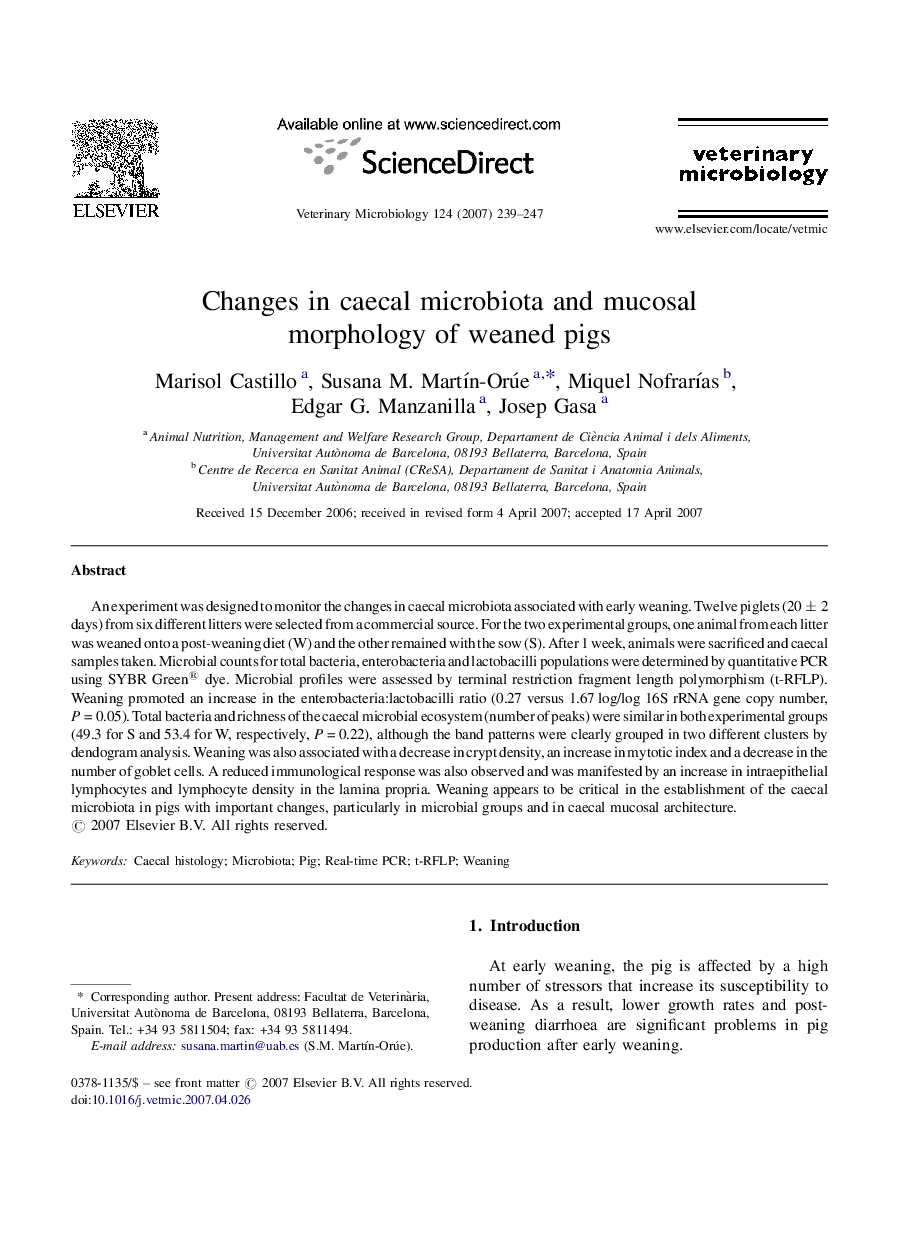| Article ID | Journal | Published Year | Pages | File Type |
|---|---|---|---|---|
| 2469137 | Veterinary Microbiology | 2007 | 9 Pages |
An experiment was designed to monitor the changes in caecal microbiota associated with early weaning. Twelve piglets (20 ± 2 days) from six different litters were selected from a commercial source. For the two experimental groups, one animal from each litter was weaned onto a post-weaning diet (W) and the other remained with the sow (S). After 1 week, animals were sacrificed and caecal samples taken. Microbial counts for total bacteria, enterobacteria and lactobacilli populations were determined by quantitative PCR using SYBR Green® dye. Microbial profiles were assessed by terminal restriction fragment length polymorphism (t-RFLP). Weaning promoted an increase in the enterobacteria:lactobacilli ratio (0.27 versus 1.67 log/log 16S rRNA gene copy number, P = 0.05). Total bacteria and richness of the caecal microbial ecosystem (number of peaks) were similar in both experimental groups (49.3 for S and 53.4 for W, respectively, P = 0.22), although the band patterns were clearly grouped in two different clusters by dendogram analysis. Weaning was also associated with a decrease in crypt density, an increase in mytotic index and a decrease in the number of goblet cells. A reduced immunological response was also observed and was manifested by an increase in intraepithelial lymphocytes and lymphocyte density in the lamina propria. Weaning appears to be critical in the establishment of the caecal microbiota in pigs with important changes, particularly in microbial groups and in caecal mucosal architecture.
